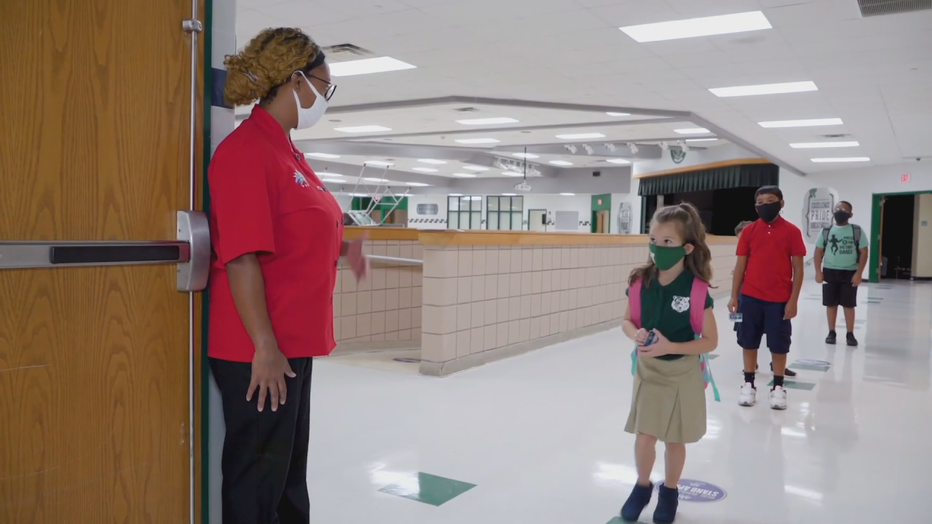Schools reopen for in-person learning in Mesquite
MESQUITE, Texas - Mesquite ISD east of Dallas welcomes back students on campuses Monday.
School began four weeks ago for students but was online only.
There were friendly faces at Gentry Elementary School Monday in Mesquite. Mesquite ISD welcomed about 60 percent of its student body back on campus for the first time since March. New protocols are now in place.
But COVID-19 is already disrupting classes for some students in other districts starting in person instruction.
“It was shocking, and it's hard to kind of jump back and figure out what to do next,” David Karr, a concerned stepparent.

Just four days in at Bowie Elementary School in Richardson, Karr was notified Friday his stepdaughter had been exposed to a COVID-19 student sending her into quarantine for two weeks.
“Trying to figure out how do we manage this,” Karr said. “How do we go back to work and have her at home alone? Or do we have to have a caretaker here?”
Richardson ISD’s superintendent with a YouTube message last Thursday.
“If you haven’t been notified, then your student was not in close prolonged contact with the person who had COVID-19,” said Richardson ISD Superintendent Jeannie Stone.
Karr says he’d like to see morning temperature checks and smaller class sizes, but understand there’s only so much the district can do.
A district spokesperson says they don’t do temperature checks because infected children often don’t produce a fever, like adults.
Northwest of Denton, Krum ISD is going even further in response to eight COVID-19 cases. They are temporarily closing its middle and high schools saying “it’s sanitizing the schools and field house. Students will move to remote learning through Sept. 25.”
Experts say it may be confusing and frustrating to see so many different approaches, but don’t expect districts to be on the same page when handling positive cases. They say that’s a good thing.”
“They are going to look to the local health departments because ultimately that has the authority to determine who really should be quarantined,” Dr. Diana Cervantes, epidemiologist for UNT Health Science Center at Fort Worth. “I do believe it’s going to be more of a case by case basis. The last thing you want to do is apply a one size fits all approach and then you miss something.”

